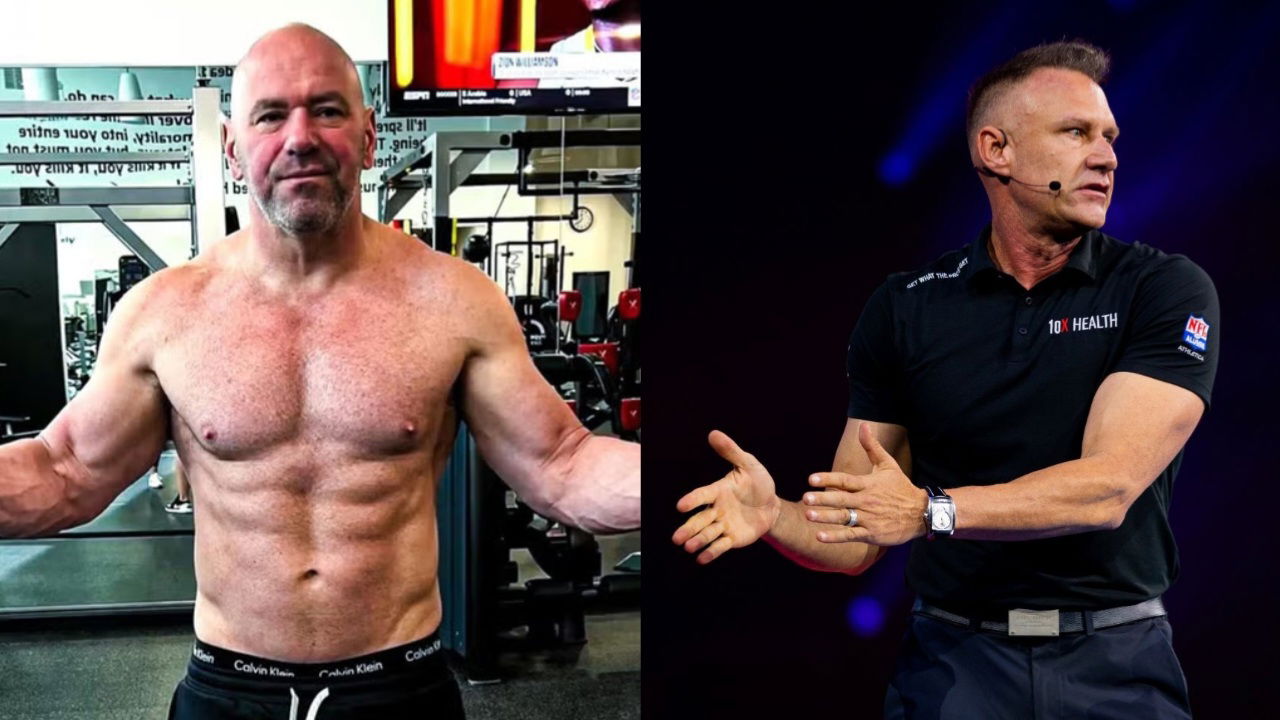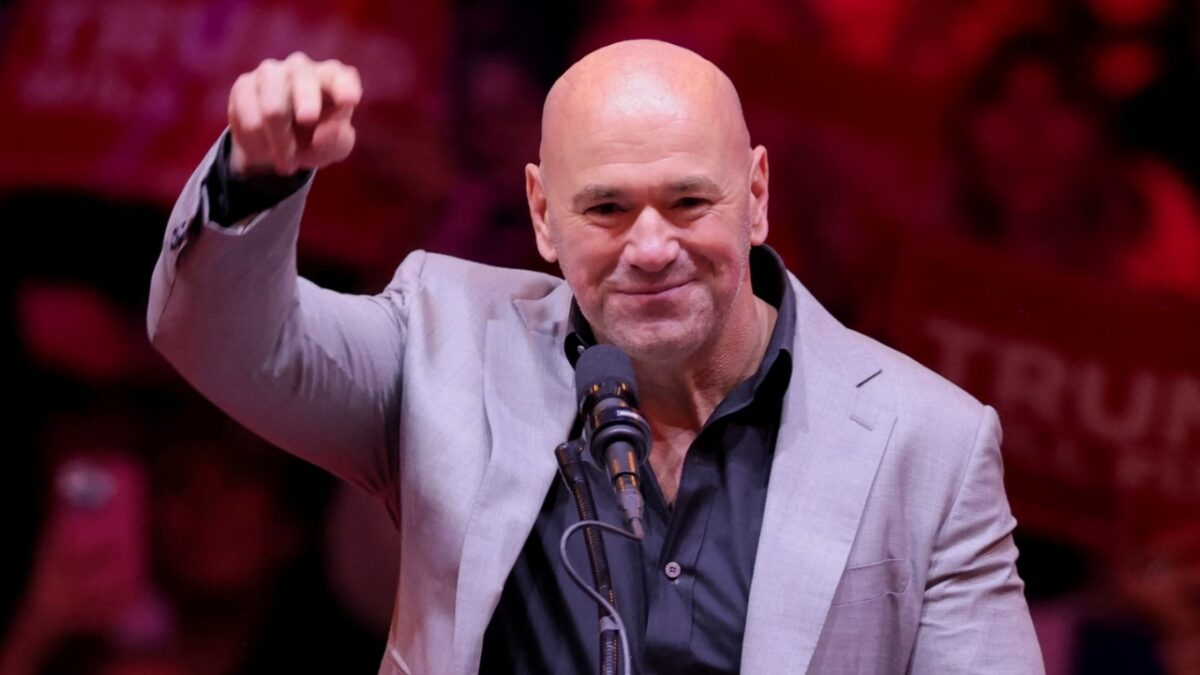Brutal Health Condition of ‘Nutrient Deficient’ Dana White Gets Revealed by Biologist
Majorly credited for saving Dana White's life, biologist Gary Brecka reveals what was wrong with the UFC CEO's body.

Gary Brecka saved Dana White's life (via Men's Health)
🔍 Explore this post with:
Health and fitness have always played a vital role in maintaining the high-paced lifestyle of leading sports figures. Yet, even the most disciplined individuals can face underlying health challenges that go unnoticed until they begin to impact daily performance. One such case recently drew attention when UFC CEO Dana White’s long-term health condition was brought to light by popular biologist Gary Brecka.
White had made headlines the past year for revealing his ripped physique at the age of 55. He had taken the UFC from a failing promotion to one of the most popular in a matter of a few years. However, the stress of managing top UFC events and travelling all around the world takes a toll on an individual. White had grown borderline obese and was facing multiple health ailments before meeting Brecka.
Gary Brecka recently spoke to popular UK broadcaster Piers Morgan regarding White’s diagnosis. The biologist revealed that White had sleep apnea and was told that he would need multiple antibiotics to survive. However, Brecka revealed that he and White eliminated all medications and helped the UFC CEO regain health by adhering to dietary restrictions.
At the end of the day, he was significantly nutrient-deficient. He had genetic methylation pathways that did not allow his body to metabolize. Certain amino acids, like Homocysteine, and not to over simplify this was just in his case, what this caused is severe irritation of his arterial system, which caused it to constrict and drive his pressure up.
Gary Brecka via Piers Morgan
Gary Brecka on how he saved Dana White’s lifepic.twitter.com/KKqMymICpo
— Jed I. Goodman © (@jedigoodman) October 8, 2025
After identifying the root cause, Brecka designed a specialized wellness plan tailored to correct White’s deficiencies. The plan involved targeted nutritional adjustments and supplements to support the body’s natural metabolic processes. These interventions were aimed at improving circulation, reducing arterial strain, and restoring balance to his nutrient levels.
Before White met Brecka, doctors had revealed that the UFC CEO would have only ten more years to live due to his failing health. However, White made a complete turnaround and broke all barriers by introducing the 86-hour fast plan, which was followed by multiple personalities, such as popular actor Josh Brolin and former UFC champion Chris Weidman.
Dana White’s experience serves as a valuable example of how personalized nutrition and scientific analysis can reveal hidden health issues. It shows the growing importance of understanding individual metabolism rather than relying solely on general fitness routines. Gary Brecka’s analysis revealed how detailed health monitoring can make a measurable difference in long-term performance.
Dana White’s battle with Meniere’s Disease
Dana White has publicly shared his struggle with Meniere’s disease, a chronic inner ear disorder characterized by episodes of vertigo, tinnitus, hearing loss, and a sensation of fullness in the ear. He attributed the onset of this condition to a violent assault in his youth. In 2012, White missed a UFC event for the first time in over a decade due to a severe episode of vertigo associated with the disease.

In an effort to manage his symptoms, White underwent an experimental treatment known as Orthokine therapy in Germany in 2013. This procedure involves extracting and processing the patient’s own blood to concentrate anti-inflammatory proteins, which are then reintroduced into the body. White reported significant improvement following the treatment and stated that it had “cured” his Meniere’s disease.
No operation yet for Dana White & his fight against Meniere's Disease. UFC source confirms he hasn't had op yet pic.twitter.com/a7MPh1c7
— Ron Kruck (@ronaldjkruck) October 22, 2012
As of now, Dana White is free from Meniere’s disease, with no reported recurrence of symptoms. His recovery demonstrates the effectiveness of targeted, specialized medical intervention in treating chronic conditions that were previously considered difficult to manage. White’s case also underscores the role of innovative therapies in addressing complex health issues for high-profile individuals.
Also Read:
- Gun Themed Wedding Ceremony of Sean Strickland Leaves Fans in Splits: “Exactly How I Imagined”
- Mateusz Gamrot Sacrifice in Pursuit of Greatness Revealed Ahead of Charles Oliveira Test







